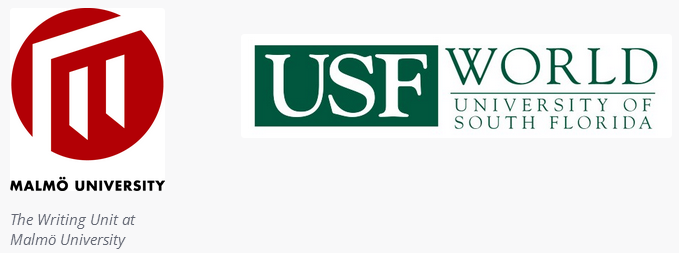Malmö University
Sweden
November 6-7, 2014
Organizers: Malmö University and the University of South Florida

During the 2014 Big Data and Writing Studies colloquium at the University of South Florida, Tampa, USA, an international cohort of Writing Studies researchers and instructors explored multiple North American and European models of writing instruction. They were eager to further explore the emergence of global theory, research, and practices in Writing Studies, such as (1) the wide variety of theoretical and pedagogical approaches to academic writing, in Europe in particular; (2) the emerging field of Big Data research into student writing in North America; and (3) the European focus on teaching writing to English-as-a-second-language (ESL) students or English-as-a-foreign-language (EFL) students. Additionally, participants questioned how digital tools are revolutionizing teaching, writing, and assessment practices, particularly in the North American context, and how these tools may reshape research, writing, collaboration, and editorial processes.
In an effort to meet the urgent need for more comprehensive and systematic knowledge about writing and writing pedagogy and to generate meaningful and pragmatic answers to these issues, the Writing Unit at Malmö University and the Rhetoric and Composition Program at the University of South Florida will host the colloquium: 2014 International Writing Studies: Sharing Research and Pedagogies.
This colloquium aims to
-
- Create an opportunity to bring forth international experiences of teaching academic writing;
- Create an opportunity for both researchers and instructors to share their experiences of North American and/or European EFL theories and practices of teaching academic writing;
- Generate insights into these theories and practices;
- Explore and develop ways of working together with education technologies;
- Explore the possibilities of researching writing through Big Data and corpus methodology;
- Find solutions to common problems within writing instruction;
- Form viable networks to facilitate future collaborative international research and pedagogical projects.
Of specific interest are the following questions:
-
- What important similarities and differences exist between North American and European EFL theories and teaching practices in academic writing?
- What elements of North American writing pedagogy could or should be imported to European audiences and vice-versa?
- What are the central social, cultural, and institutional differences that affect the teaching of writing at university level?
- How are educational technologies transforming both learning communities and research methods?
The colloquium is based around a number of sessions with common themes where the participants can present their research and narratives in the form of papers or posters. In particular, we are looking for contributions within the following area clusters:
-
- Narratives of people’s experiences of teaching a particular approach(es) to teaching academic writing;
- E-tools, digital technology, blended learning environments;
- Collaborative writing, peer reviewing, and instructor feedback: pedagogical development and assessment practices;
- L2 learners: what should we focus on in writing instruction?
- New methods of making student writing accessible to research: Big Data, corpora, other digital tools.
Presentation/Poster Guidelines
Presentations should be 20 minutes long followed by 20-minute discussions; the poster session will be scheduled in conjunction to one of the colloquium events.
Paper and poster abstracts: 450 words, excluding the references to be submitted to: submit@malmowsc.com
Submission deadline: 1 August 2014.
Notification of acceptance: 1 September 2014.
Colloquium updates: http://malmowsc.com
We are excited to welcome you to Malmö.
Steering committee:
Professor Magnus Nilsson
Department of Arts and Communication, Malmö University
magnus.nilsson@mah.se
Professor Joseph M. Moxley
Director, First-Year Composition
Interim Director, Rhetoric and Compositon Programs
University of South Florida
moxley@usf.edu
Organizing committee:
Assistant Professor Damian Finnegan
The Writing Unit; Department of Language and Linguistics, Malmö University
damian.finnegan@mah.se
Associate Professor Asko Kauppinen
The Writing Unit; Department of Arts and Communication, Malmö University
asko.kauppinen@mah.se
Associate Professor Anna Wärnsby
The Writing Unit; Department of Culture, Languages and Media, Malmö University
anna.warnsby@mah.se